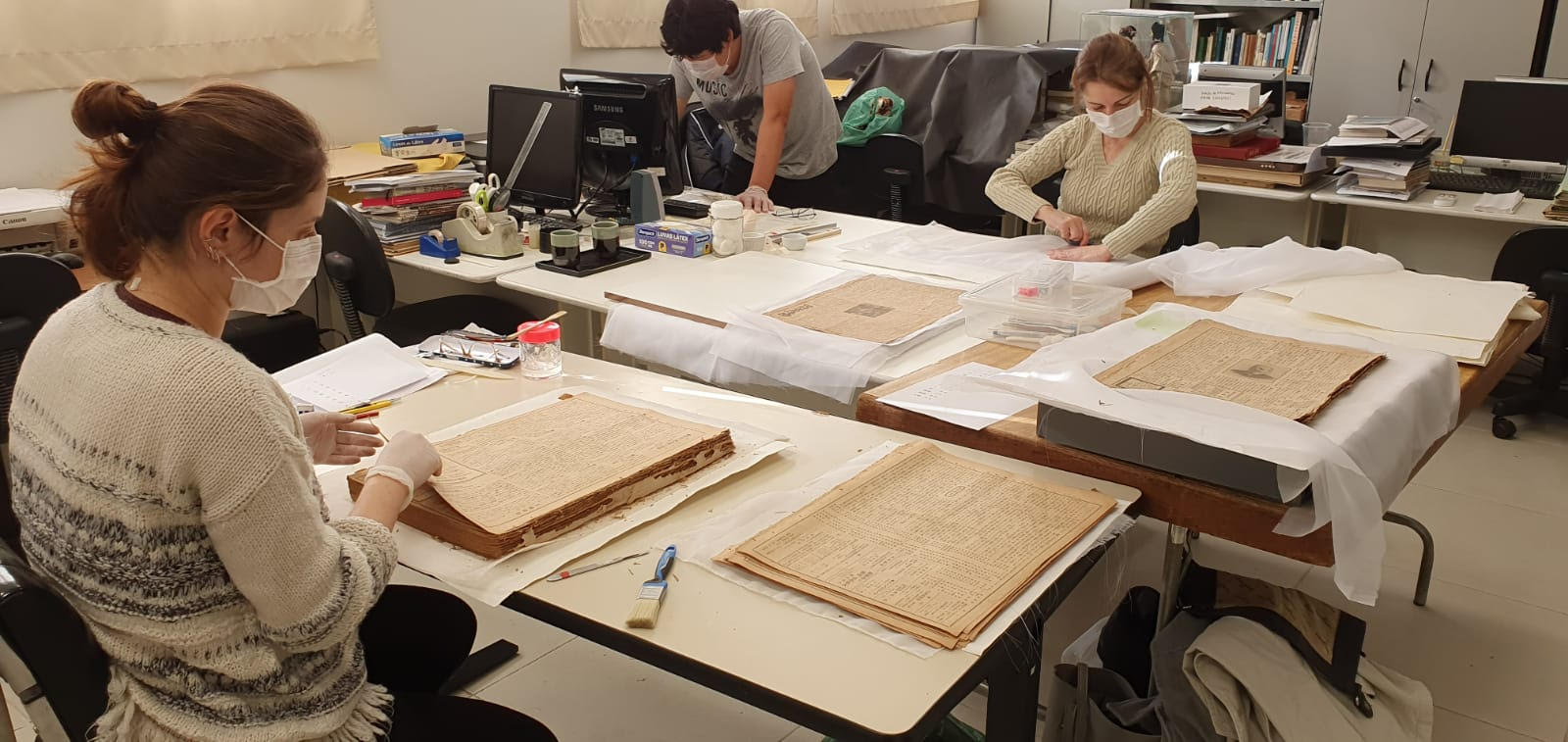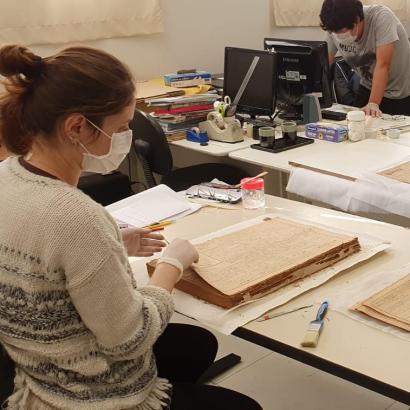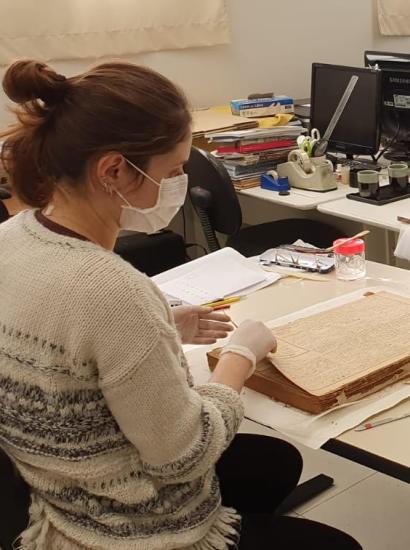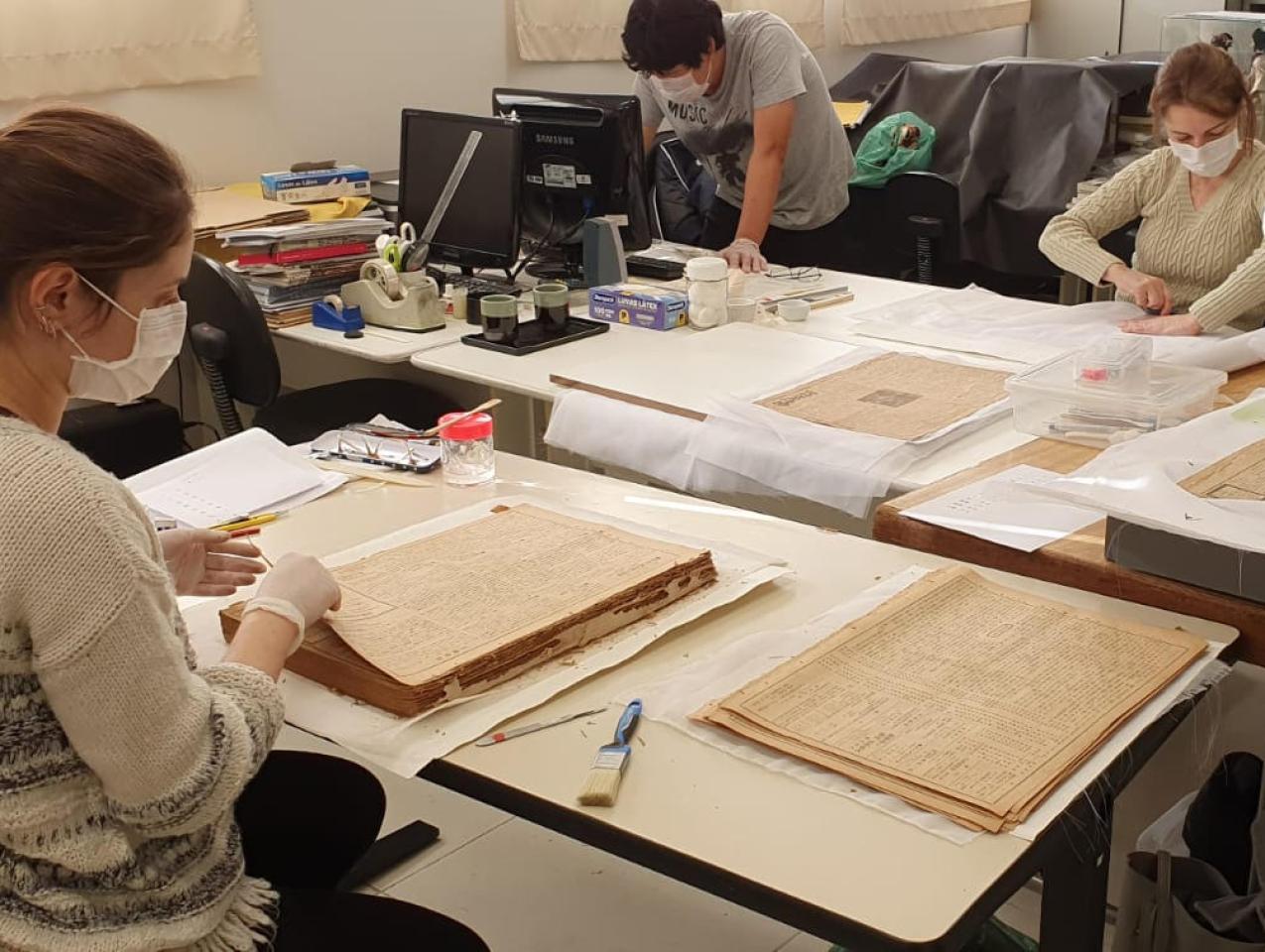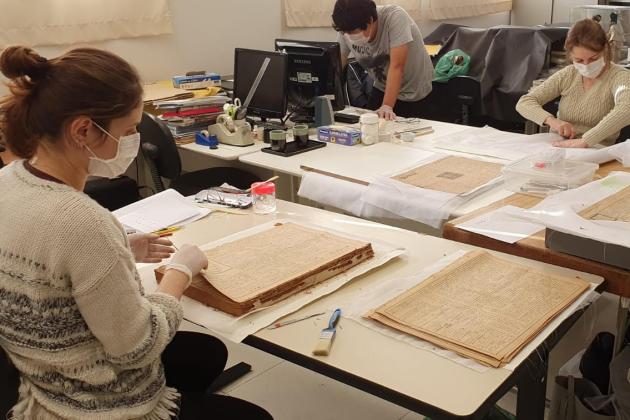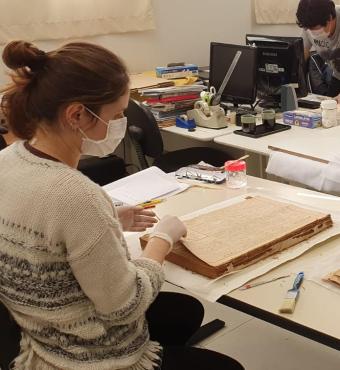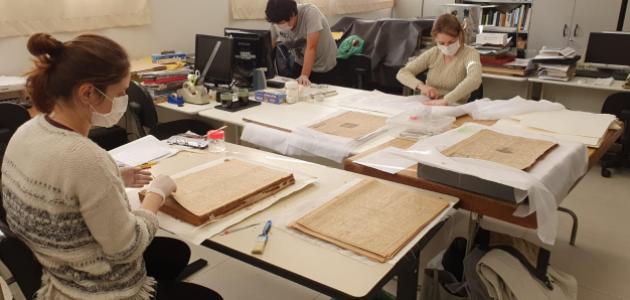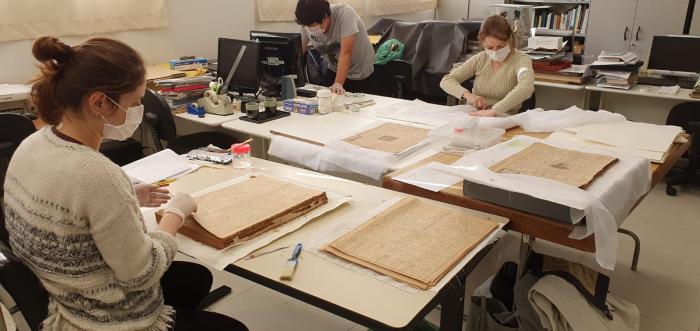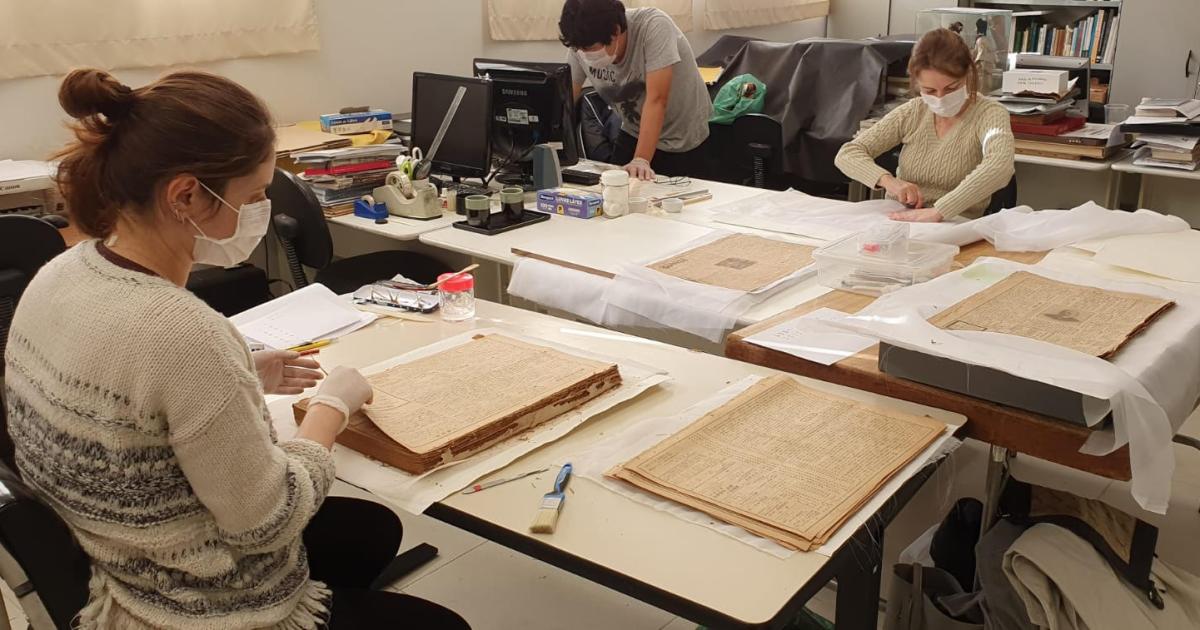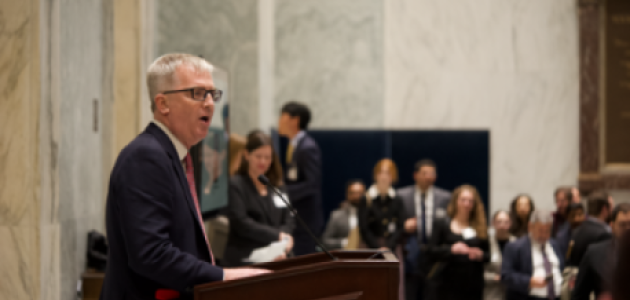The Hoover Institution received a grant from the National Endowment for the Humanities (NEH) in 2020 for a project aimed at promoting international collaboration between scholars based in the United States and in South America who are focused on Japanese transnational history. The project, Transnational Japanese Diaspora: Preserving the Brazilian Nikkei Literary and Cultural Heritage, is aligned closely with Hoover’s endowed Japanese Diaspora Initiative and makes use of the Hoover Institution Library & Archives’ Hoji Shinbun Digital Collection of Japanese-language newspapers. Principal investigator Condoleezza Rice, director of the Hoover Institution, and co-principal investigator Kaoru (Kay) Ueda, curator of Japan and the Japanese Diaspora Collections led the project, which succeeded beyond its original goals of digitization by generating scholarship.
One of the outcomes of the project was to preserve and digitize important, rare, and historical Japanese Brazilian newspapers. With guidance from the Hoover Institution Library & Archives, the Museu Histórico da Imigração Japonesa (the Historical Museum of Japanese Immigration) in São Paolo, Brazil, conserved and digitized three major Japanese-language newspapers, from their collection dating from 1917 through 1964: the Notícias do Brasil (Burajiru Jihō), Nippak-Shimbun (Nippaku Shinbun), and Diário Nippak (Nippaku Mainichi Shinbun). After the Library & Archives completed describing the materials and creating the metadata, the newspapers were made available in the Hoji Shinbun Digital Collection, providing researchers around the world with access to more than 35,000 pages of new materials from Brazil.
Following the digitization of the Burajiru Jihō, a virtual half-day international symposium was held in 2021. “Transnational Japanese Diaspora: Preserving the Brazilian Nikkei Literary and Cultural Heritage” was a bilingual event in Portuguese and English designed to introduce the latest research on Nikkei literature in Japanese and Portuguese languages and was free and open to the public. Participants from the symposium have gone on to produce or are preparing for scholarly publications and university course curricula, such as:
- Edward Mack, “The Japanese-Language Newspaper Novel Abroad,” Humanities 11, no. 6 (December 2022): article no. 158. https://doi.org/10.3390/h11060158;
- Seth David Jacobowitz, “South America Bound: Settler Colonist Fiction of the Meiji Era,” in The Japanese Empire and Latin America, ed. Pedro Iacobelli and Sidney Xu Lu (Honolulu: University of Hawaii Press; forthcoming, 2023). Jacobowitz was also a co-PI on the NEH grant and co-organized the symposium with Ueda.
- Monica Okamoto, “Intelectuais Nipo-Brasileiros nos Jornais em Língua Japonesa do Pós-Guerra (1946–1970),” in Mediações transnacionais e imprensa rstrangeira publicada no Brasil, ed. L. Biondi, T. Luchese, and V. Guimarães (São Paulo: Editora da UNESP, 2023). Okamoto also subsequently received a Fulbright visiting scholarship to teach at Emory University in 2023.
As part of the endowed Japanese Diaspora Initiative, at the end of 2022, a full-day workshop cohosted by the Hoover Institution Library & Archives and the Japanese Association for Migration Studies invited junior scholars and graduate students to present their research papers, exchange ideas, and receive feedback at the Second International Workshop on Japanese Diaspora. Encouraged by the newly available Japanese Brazilian newspapers in the Hoji Shinbun Digital Collection, many presenters made in-depth historical studies by using this resource. The workshop was held in person at the Library & Archives and also expanded to a virtual audience, who were welcomed to hear and discuss the rising young scholars’ presentations on their cutting-edge research.
The NEH grant has helped to advance the scholarship of Japanese transnational history through the preservation of materials and scholarship in both North and South America. It has enabled the Library & Archives to take the next steps toward expanding the geographic reach of primary-source material and scholarship into South America.




